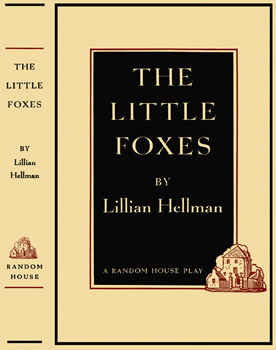
The Little Foxes is a 1939 play by Lillian Hellman, considered a classic of 20th century drama. Its title comes from Chapter 2, Verse 15, of the Song of Solomon in the King James version of the Bible, which reads, "Take us the foxes, the little foxes, that spoil the vines: for our vines have tender grapes." Set in a small town in Alabama in 1900, it focuses on the struggle for control of a family business. Tallulah Bankhead starred in the original production as Regina Hubbard Giddens.
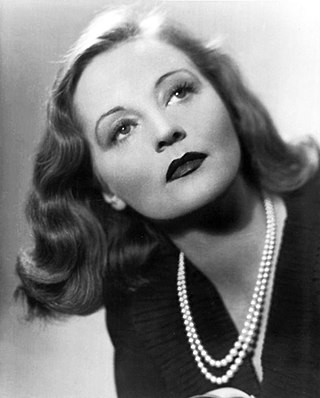
Tallulah Brockman Bankhead was an American actress. Primarily an actress of the stage, Bankhead also appeared in several films including an award-winning performance in Alfred Hitchcock's Lifeboat (1944). She also had a brief but successful career on radio and made appearances on television. In all, Bankhead amassed nearly 300 film, stage, television and radio roles during her career. She was inducted into the American Theater Hall of Fame in 1972 and the Alabama Women's Hall of Fame in 1981.
Tallulah, Talulah or Talullah may refer to:

The Big Show was an American radio variety program featuring 90 minutes of comic, stage, screen, and music talent. It was aimed at keeping American radio in its classic era and making it robust against the rapidly growing television tide. The show ran from November 5, 1950, to April 20, 1952.

Blanche DuBois is a fictional character in Tennessee Williams' 1947 Pulitzer Prize-winning play A Streetcar Named Desire. The character was written for Tallulah Bankhead and made popular to later audiences with Elia Kazan's 1951 film adaptation of Williams' play; A Streetcar Named Desire, starring Vivien Leigh and Marlon Brando.
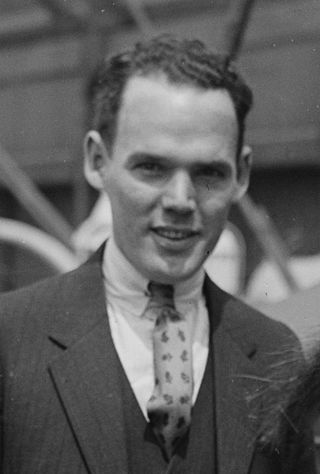
Henry Watterson Hull was an American character actor who played the lead in Universal Pictures's Werewolf of London (1935). For most of his career, he was a lead actor on stage and a character actor on screen.

Carolyn Nye McGeoy, known professionally as Carrie Nye, was an American actress. In her career spanning 32 years, she was nominated for a Tony Award in 1965, a Primetime Emmy Award in 1980, and a Drama Desk Award in 1981.

Tony Anthony is an American actor, producer, screenwriter and director best known for his starring roles in Spaghetti Westerns, most of which were produced with the aid of his friends and associates Allen Klein and Saul Swimmer. These films consist of The Stranger series - A Stranger in Town (1967), The Stranger Returns (1967), The Silent Stranger (1968) and Get Mean (1975) - and the Zatoichi-inspired Blindman (1971). Anthony also wrote, produced and starred in Comin' at Ya! (1981) and Treasure of the Four Crowns (1983), the first film being largely credited with beginning the 1980s revival of 3D films in Hollywood.
CBS Children's Film Festival is a 1967–1984 television series of live action films from several countries that were made for children. Originally a sporadic series airing on Saturday mornings, Sunday afternoons, or weekday afternoons beginning in February 1967, it became a regularly scheduled program in 1971 on the CBS Saturday-morning lineup, running one hour with some films apparently edited down to fit the time slot. The program was hosted by 1950s television act Kukla, Fran and Ollie, a.k.a. puppeteer Burr Tillstrom and actress Fran Allison.
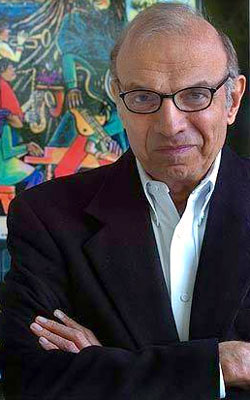
Saul Swimmer was an American documentary film director and producer best known for the movie The Concert for Bangladesh (1972), the George Harrison-led Madison Square Garden show that was one of the first all-star benefits in rock music. He was also a co-producer of The Beatles' 1970 documentary Let It Be.

Donald Ray Seawell was an American cultural and civic leader, born in Jonesboro, North Carolina. He was the founder of the Denver Center for the Performing Arts.
The Alabama Stage and Screen Hall of Fame was founded in 1998 for the purpose of honoring Alabamians who have made significant contributions to film, television or theatre. The organization is sponsored jointly by Theatre Tuscaloosa and Shelton State Community College in Tuscaloosa, Alabama.
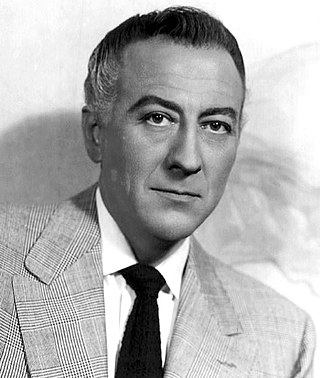
John Emery was an American actor.

Mary Eugenia Rawls was an American actress.

The Little Foxes is a 1941 American drama film directed by William Wyler. The screenplay by Lillian Hellman is based on her 1939 play The Little Foxes. Hellman's ex-husband Arthur Kober, Dorothy Parker and her husband Alan Campbell contributed additional scenes and dialogue.

Thomas Craig "T. C." Jones was an American female impersonator, actor, and dancer who from the mid-1940s to the late 1960s performed on stage, in nightclubs, films, and on television. He was known chiefly in the entertainment industry for his imitations in full costume of many famous actresses and other women, including Tallulah Bankhead, Mae West, Judy Garland, Katharine Hepburn, Bette Davis, Édith Piaf, and Carmen Miranda. In 1959, the American magazine Time described Jones as "probably the best female impersonator since vaudeville's late famed Julian Eltinge".

Faithless is a 1932 American pre-Code romantic drama film about a spoiled socialite who learns a sharp lesson when she loses all her money during the Great Depression. The film stars Tallulah Bankhead and Robert Montgomery and is based on Mildred Cram's novel Tinfoil, which was the film's working title.

The Scarlett O'Hara War is a 1980 American made-for-television drama film directed by John Erman. It is based on the 1979 novel Moviola by Garson Kanin. Set in late 1930s Hollywood, it is about the search for the actress to play Scarlett O'Hara in the much anticipated film adaptation of Gone with the Wind (1939). This film premiered as the finale of a three-night TV miniseries on NBC called Moviola: A Hollywood Saga.
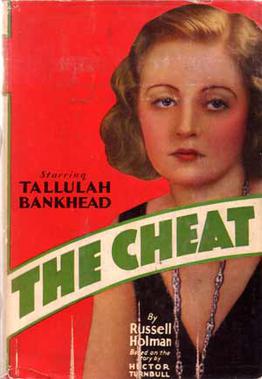
The Cheat is a 1931 American pre-Code drama film directed by George Abbott and starring Tallulah Bankhead and Harvey Stephens. The film is a remake of the 1915 silent film of the same title, directed by Cecil B. DeMille.

Dark Victory is a 1934 Broadway play written by George Brewer Jr. and Bertram Bloch starring Tallulah Bankhead. It premiered on November 9 at the Plymouth Theatre and ran until December 19.

















